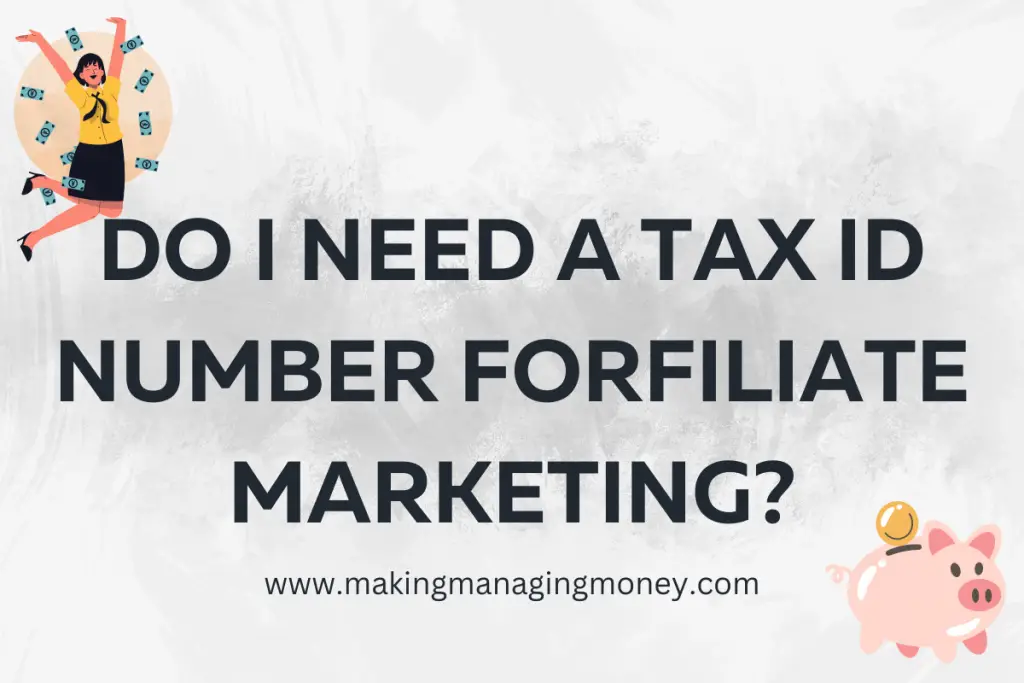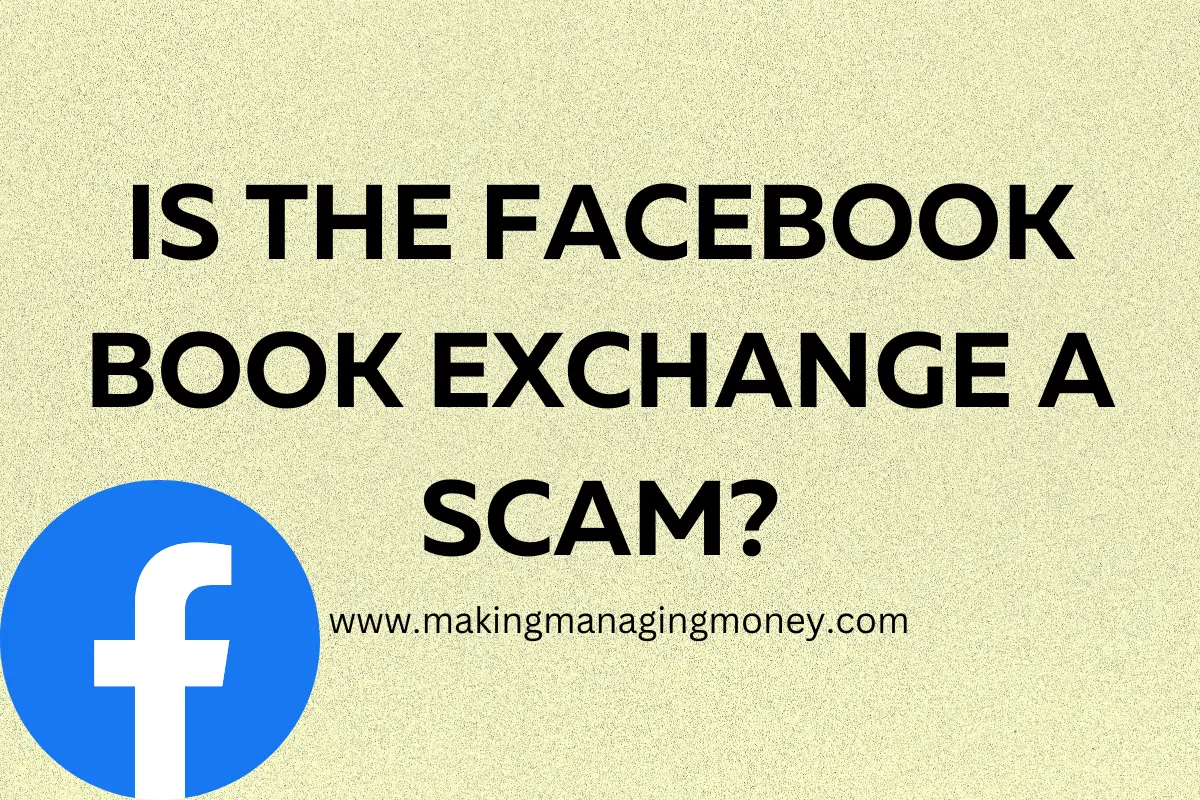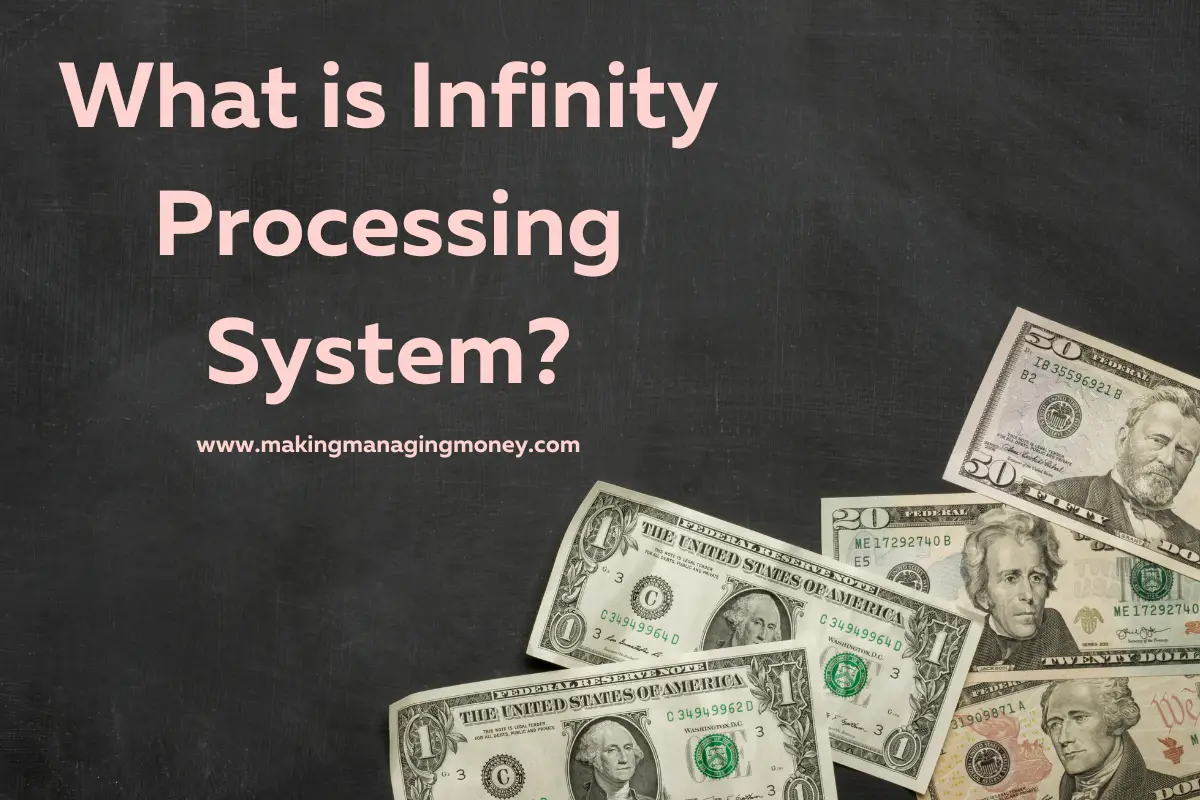Do I need a Tax ID Number for Affiliate Marketing?
If you’re getting into affiliate marketing, you may be wondering if you’ll need a tax ID number, do you?
You do need a taxpayer identification number (TIN) to enroll in affiliate marketing, however, this can be your social security number. As your business grows you may decide to set up a legal entity to home your business. At that time you’d get a business EIN to use for tax purposes and would use that.
As a reminder, I have an MBA, I am a Certified Public Accountant (CPA), and have almost 15 years working in finance and accounting. These are my opinions based on researched facts and my understanding of those facts. However, this is not legal, financial, or tax advice. If you need legal, financial, or tax advice, you should reach out to a professional for a 1:1 chat! All opinions are my own.

Tax ID Number Needed for Affiliate Marketing?
As stated above, yes you do, and it can be as simple as a social security number. If you are just starting out, recommended products on Amazon (or other affiliate products) off your Instagram page, blog, or YouTube, should be more than enough. Affiliate marketing is generally a very low-risk business, as you are simply referring people to products that they purchase through another company.
Working as a sole proprietorship (see below) generally is probably a good way to start. Then the business structure can be evaluated as the business grows.
Do You Pay Taxes on Affiliate Marketing Earnings?
Just like any other income earned, you will need to pay taxes on your affiliate marketing. I highly recommend talking to an accountant once you’re earning revenue off your affiliate marketing to determine the best course of action for yourself regarding your taxes.
What is a Taxpayer Identification (TIN) Number?
According to the IRS, a number is used by the IRS to make sure you’re following tax laws. There are a few numbers you can use for this, but the most common is a Social Security Number (SSN) or Employer Identification Number (EIN).
What is an Employer Identification Number (EIN)?
I like to think of an EIN as a social security number for a business. It is the federal tax identification number associated with a legal business entity. This is how all transactions that need to be tracked for tax purposes for the IRS can be associated with the business.
What Legal Entities Can I Set Up?
If you’re interested in doing business, you might be thinking about setting up a business. But what does that mean and what type should you set up? Here is a very basic overview, there are many more details that are not captured here! But this should give you a good place to start on what you may want to further research and look into.
- Sole proprietorship
- Good news! If you’re a person who is doing business, you’re automatically a sole proprietorship. This means your business is not a separate entity from your personal self. That means the debts of the business are your debts.
- The tax identification number in a sole proprietorship is your social security number.
- Why I like this option – it is good for new businesses that are low-risk. I’m evaluating if my blogs will be successful and if yes, then I will consider moving to an LLC (more on that below). But when you first start a low-risk business, there can be expenses associated with setting up formal legal entities. So operating as a sole proprietorship is a great fit for me.
- Why I don’t always like this option – if your business is a higher risk. In a sole proprietorship there is no separation from you personally from the business. So if you’re in a higher-risk business, like tree removal or working as an accountant doing taxes – if you make a mistake you could be sued. In these cases, you’d like a little separation between you and your business so your personal assets (generally) aren’t on the table for any legal lawsuits.
- Once you’re ready to set up a business entity, I would recommend you reach out to an accountant or lawyer that can help you determine what the right structure for you is.
- Partnership
- This should be used when there are two or more people starting a business venture together, and the entity will take on an EIN number for taxation purposes
- There are two types of partnerships, limited partnerships (LP) and limited liability partnerships (LLP). A limited partnership is one partner with unlimited liability with the rest having limited liability. In an LLP all partners have limited liability.
- If you’re a limited partner, it protects you from the actions of other partners as well as protecting the individual from debts of the partnership
- This might be a good option if you and a friend share a social media website and its now being monetized
- Limited Liability Company (LLC)
- An LLC is somewhere between a sole praetorship/partnership that I just mentioned and the Corporations that we will talk about next.
- LLCs have an EIN for taxation purposes
- An LLC generally gives you the protection of your personal assets, as it provides you with separation of individual and business
- This might be an option to look into as your online business grows
- Corporation
- Corporations offer the strongest separation of an owner and the company. However, they are much more expensive to maintain and you should not form a corporation without careful consideration with a professional. You would most likely never form a C Corp for affiliate marketing.
- There are two types of corporations, C Corps and S Corps. Each has different tax benefits. But again, for affiliate marketing – not something you should need to worry about!
Wrap Up
If you liked this article, you could check out all my MLM-related articles here: MLM Reviews & Info
It would mean a lot to me if you would check out my YouTube channel. You can also find me on Instagram to share any feedback you may have on the info above! Both of these pages are new, so every new follower, like comment really helps (and makes my day)!




